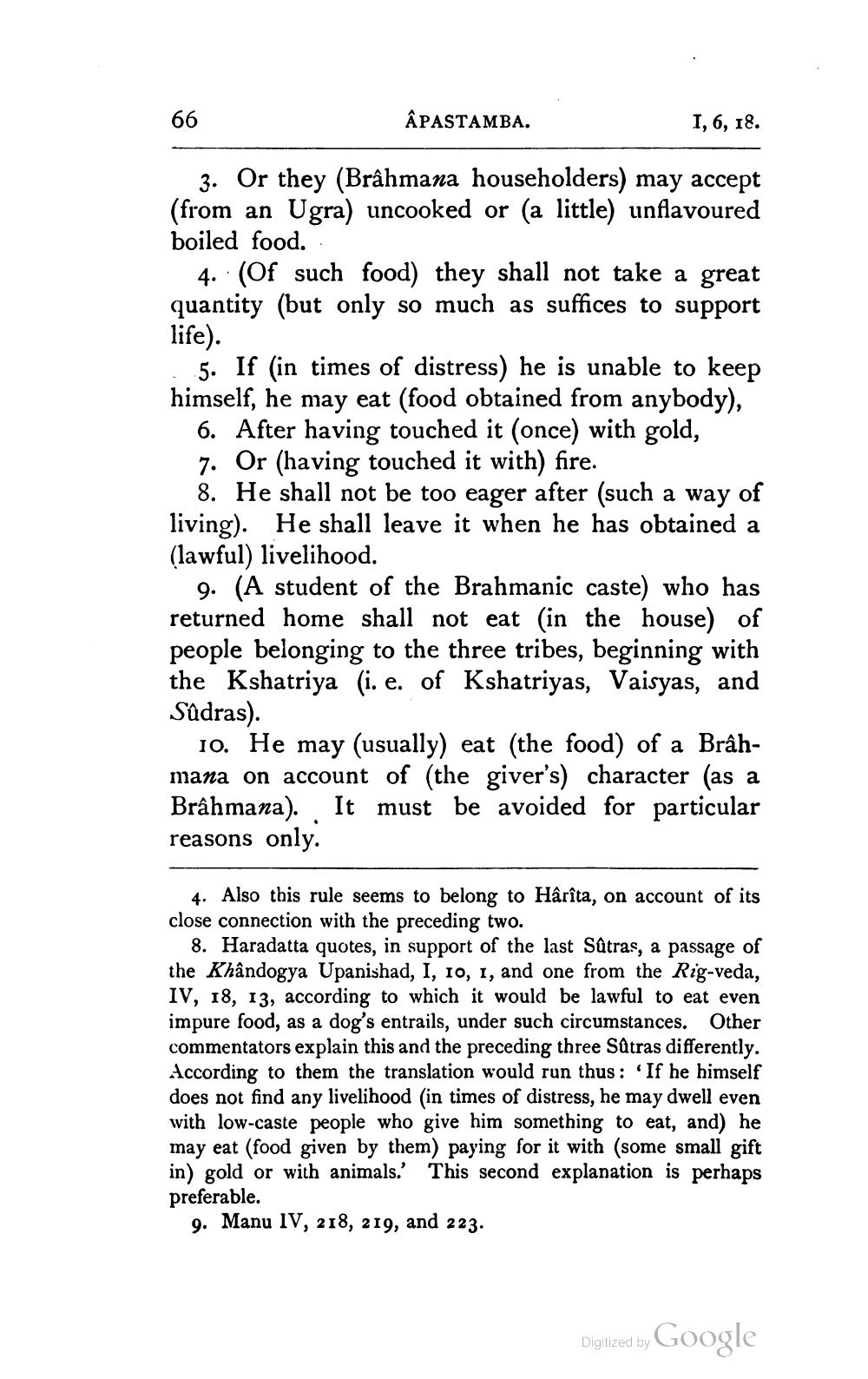________________
ÂPASTAMBA.
1, 6, 18.
3. Or they (Brâhmana householders) may accept (from an Ugra) uncooked or (a little) unflavoured boiled food.
4. (Of such food) they shall not take a great quantity (but only so much as suffices to support life).
5. If (in times of distress) he is unable to keep himself, he may eat (food obtained from anybody),
6. After having touched it (once) with gold, 7. Or (having touched it with) fire.
8. He shall not be too eager after (such a way of living). He shall leave it when he has obtained a (lawful) livelihood.
9. (A student of the Brahmanic caste) who has returned home shall not eat in the house) of people belonging to the three tribes, beginning with the Kshatriya (i. e. of Kshatriyas, Vaisyas, and Sûdras).
10. He may (usually) eat (the food) of a Brâhmana on account of (the giver's) character (as a Brâhmana). It must be avoided for particular reasons only.
4. Also this rule seems to belong to Hârîta, on account of its close connection with the preceding two.
8. Haradatta quotes, in support of the last Sutras, a passage of the Khândogya Upanishad, I, 10, 1, and one from the Rig-veda, IV, 18, 13, according to which it would be lawful to eat even impure food, as a dog's entrails, under such circumstances. Other commentators explain this and the preceding three Satras differently. According to them the translation would run thus : If he himself does not find any livelihood (in times of distress, he may dwell even with low-caste people who give him something to eat, and he may eat (food given by them) paying for it with (some small gift in) gold or with animals. This second explanation is perhaps preferable.
9. Manu IV, 218, 219, and 223.
Digitized by Google




